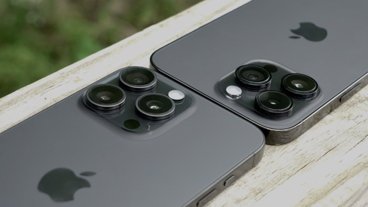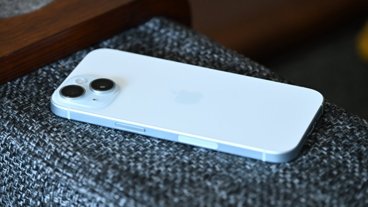Symbian reports slow growth in front of iPhone 3G launch
Earlier today, Symbian reported second quarter financial reports that outlined a significant slowdown in both growth and profits that signal an end to its rapid acceleration as the leader in smartphones worldwide and suggest tough times ahead for the iPhone competitor.
However, Symbian has a weak and shrinking presence in the US, having slid from owning 25% of the North American market in 2004 to less than 5% today. Symbian's worldwide share has also tumbled recently, from a dominating 72.8% share in late 2006 to today's 55%, as reported in Symbian's online market data.
According to market research firm Strategy Analytics, phone sales in the first half of 2008 were up 15% and smartphones are up by 35% over last year. But Symbian's second quarter sales are only up 5% over 2007, despite the company's focus on the high growth smartphone market.
Symbian prepares for hurricane iPhone
Symbian's slow growth is a big change from last fall, when the company was seeing 50% annual growth, according to a report by Reuters. One factor in the cooling sales of Symbian phones has been the high profile anticipation of the iPhone 3G.
In the second quarter, Symbian sold 19.6 million phones, compared to Apple's scant 717,000 units. iPhone sales were up 265% over the previous year-ago quarter. Of course, Apple only sold 270,000 iPhones in the year-ago quarter because it had only been on sale for parts of three days.
At the same time, this year's second fiscal quarterly iPhone sales, cited for competitive reasons on Symbian's website, were down dramatically because of extremely constrained supplies of the original model in preparation for the iPhone 3G launch. Apple subsequently sold more iPhone 3Gs on its launch weekend than it sold in the second quarter of both years put together.
Nokia sets Symbian free
In its first full quarter, Apple claimed 27% of the US market, a level of success that sent Symbian partner Sony Ericsson scrambling to find a suitable competitor and ultimately into the arms of Microsoft's Windows Mobile with the planned (and still overdue) XPERA X1 phone.
Nokia bought up Linux smartphone vendor Trolltech, and has since offered $387 million to buy out its Symbian partners and turn the company into a foundation in order to release the Symbian OS as an open source project similar to Google's Android.
The bottom appears to be falling out of the smartphone OS software business, as Symbian's revenues fell 14% in the second quarter and Reuters noting that "average royalties per phone fell to $3.40 from $4.30."
Worldwide dominance cracked open
Piper Jaffray analyst Gene Munster has forecast sales of 4.47 million iPhone 3Gs for the current quarter, a figure he cited as conservative for not taking in to account the expanded launch of additional countries that began August 22.
That figure would put Apple's year over year growth at 400% over its first full quarter of sales, a particularly notable figure considering that its launch last year was regarded as spectacular at the time.
The difference this year is that Apple is selling the iPhone 3G on Symbian's turf worldwide. Other American companies have had little luck in breaking into Symbian's home field advantage, with both Windows Mobile and RIM's BlackBerry together accounting for nearly none of the Japanese market and less than 10% of the market in Europe, China, and other regions after years of trying (above), according to Canalys.
With sales of 4 million units, Apple would take a 12% share of the world all by itself in its first full quarter of worldwide sales.
 Prince McLean
Prince McLean











 Marko Zivkovic
Marko Zivkovic
 Amber Neely
Amber Neely
 Christine McKee
Christine McKee
 Malcolm Owen
Malcolm Owen
 Mike Wuerthele and Malcolm Owen
Mike Wuerthele and Malcolm Owen

 William Gallagher
William Gallagher








